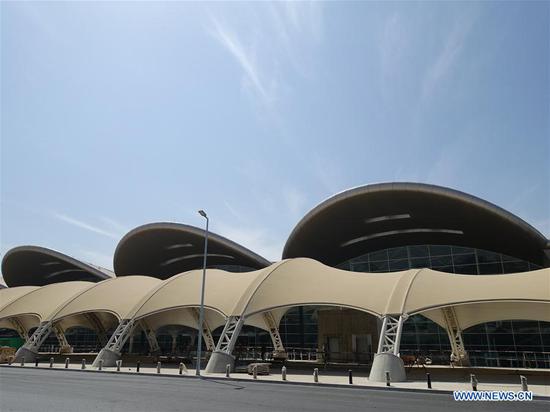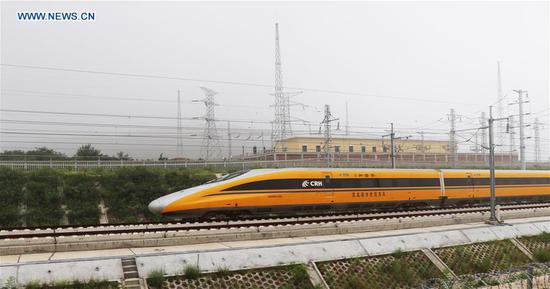
More cities to take part in pilot program, especially in border areas, in a move experts say will increase foreign business
Another 22 cities, including Beijing, will join 13 cities that have already established national pilot zones for cross-border e-commerce, a move that experts and industry insiders said will help boost foreign trade via digital platforms.
The State Council, China's Cabinet, approved the establishment of the new pilot zones in Beijing, 17 provinces and two autonomous regions, according to a notice disclosed last week. Half are located in border areas or frontier regions designated for opening-up.
The zones will pilot technical standards, operational procedures, management models and informationization for business-to-business operations in the cross-border e-commerce industry, which is expected to find new ways to promote a healthy development of the industry.
Meanwhile, local governments should deepen administrative streamlining for foreign trade and support the pilot zones in simplifying procedures in logistics, warehousing and customs clearance to boost liberalization and facilitation for international trade, the notice said.
New business models, including cross-border e-commerce, are vital means to improve the quality of foreign trade, the Ministry of Commerce said last week. These business models were mentioned by the Government Work Report, delivered by Premier Li Keqiang in March, each year since 2015. The State Council approved 13 pilot zones in 2015 and 2016.
Turnover in pilot zones doubled in two consecutive years, creating a new focus for foreign trade that also serves domestic economic transformation, innovation and business startups, the ministry said.
Establishment of such zones is a vital measure to explore diverse international markets, stabilize foreign trade and improve international competitiveness, said Wang Penghu, a member of the council of the nonprofit China Transaction Banking 50 Forum. Integrating international trade and internet technologies, cross-border e-commerce can expand imports and help Chinese companies, especially small and medium-sized enterprises, go global, he said.
Wang's comment can be exemplified by the case of Nanning, capital of the Guangxi Zhuang autonomous region and one of the 22 pilot cities.
More than 200 cross-border e-commerce companies are operating in the city. The first half of this year saw more than 1.35 million cross-border transactions being made to trade goods worth $9.17 million, including exports of $7.34 million, in the city. The China-ASEAN cross-border e-commerce management center was established by the China Post Co's Guangxi branch last year. In the first half of this year, about 4.95 million packs had been processed by the center, including 4.18 million packs exported to other countries.
Chen Gang, an employee of the Nanning bureau of commerce, said detailed plans are being made for the pilot zone, which aims to build Nanning into a cross-border e-commerce service center connecting China with the Association of Southeast Asian Nations. Via the pilot zone, the city also aims to build a new channel for China-ASEAN trade and an online upgraded version for the China-ASEAN free trade zone, he said.
Meanwhile, the new pilot zones are expected to bring business prospects for e-commerce companies. Hou Yibing, regional director for the Middle East at DHgate.com, a leading Chinese cross-border e-commerce online service provider, said the establishment of new pilot zones will be beneficial for companies like his, which has been working with Turkey, Oman and other countries to build digital trading platforms.
New pilot zones will help boost China's exports, Hou said. His company also plans to invite foreign companies to invest in these pilot zones to expand their businesses in China. Preferential policies offered by pilot zones can be attractive to these foreign investors, he said.
"More cities mean more options for us. Now we can talk with 22 more cities to expand cross-border operation," he said.
"Meanwhile, we are planning to import goods in cities such as Beijing. We can build bonded warehouses in new pilot zones for such imports with lower costs."
Cross-border e-commerce businesses also demand easier and faster customs clearance for traders from both sides, Hou said. He suggested the government should forge more cooperation with other countries in simplifying customs clearance.


















































